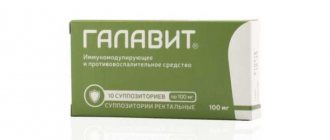What is gastroenteritis
Gastroenteritis is inflammation of the stomach and small intestine. People most often call this disease intestinal flu. The main viral agent that causes gastroenteritis is rotavirus. Adenoviruses, caliciviruses and other pathogenic flora can also provoke the disorder. In some cases, the infection spreads to the large intestine. Then it is called gastroenterocolitis.
In the ICD system, the diagnosis is assigned code A09 - “infectious gastroenteritis (diarrhea)” and code K52 - “non-infectious gastroenteritis”.
Symptoms of gastroenteritis
The incubation period can last from 1 to 7 days. Although most often the disease makes itself felt in the first day after the infection occurs. Symptoms in adults and children are practically the same. Although in adults they are not so pronounced, since among them a large percentage of patients are simply carriers of the infection. Therefore, it may resemble an exacerbation of gastritis, which will be accompanied by mild inflammation.
In many ways, the symptoms of the disease will depend on which pathogenic flora has affected the digestive organs. This affects the frequency of symptoms and their intensity. However, signs of a disorder are always accompanied by a malfunction of the stomach and intestines.
Symptoms of gastroenteritis include:
- Abdominal pain. It is concentrated in the upper part, as well as in the navel area. The painful sensations are intense and occur as spasms. The person feels the urge to have a bowel movement and may develop vomiting. After defecation, the pain subsides, but for a while. A few minutes later she returns.
- Liquefaction of stool. At first it becomes mushy. The more often stools occur, the thinner the consistency of the stool will be. If stool occurs more than 15-20 times a day and this intensity of diarrhea persists for more than 2 days, you should seek medical help.
- Nausea. When the disease is mild, nausea may be the only symptom of gastroenteritis.
- Vomiting occurs in severe and moderate cases of the disease. This may happen several times until the stomach is completely cleared. If the inflammation is severe, then vomiting occurs regularly. A person is not even able to drink water, as it comes back out.
- Flatulence, rumbling along the intestines, overfilling with gases.
- Increased body temperature. The stronger the inflammation, the higher the marks on the thermometer will be. The elevated body temperature persists for 1-2 days. If after this time there is no improvement, then you need to consult a doctor.
- Headache and muscle pain. These symptoms indicate intoxication of the body. To reduce them, it is forbidden to take Ibuprofen or other similar painkillers. Under its influence, the mucous membranes of the digestive organs become even more inflamed. To make the patient feel better, efforts should be directed toward removing toxins from the body as quickly as possible.
- Increased weakness, dizziness. These symptoms occur due to the fact that a person does not eat and drink little water.
- Dry mouth. This symptom is dangerous as it indicates increasing dehydration.
- Severe disease provokes dry skin.
Folk recipes
The use of traditional medicine allows you to cure various intestinal diseases without resorting to medications. If the disease is not acute, in addition to the general instructions, the patient is recommended to take tinctures and decoctions of natural origin.
The following folk recipes have a beneficial effect on the outcome of treatment of the disease:
- Cranberry tincture. A drink made from cranberries has antiseptic properties and can also eliminate inflammatory reactions within the body and strengthen the immune system. To prepare, you need to pour boiling water over about 20-25 g of berries, then cook over low heat for 15-25 minutes. Take 100 ml of the finished drink. 4 times a day.
- Mint tincture. The plant has a special antibacterial and antiseptic effect. Just like cranberries, mint has an anti-inflammatory effect and eliminates excessive gas formation. To prepare the decoction, you need to brew fresh mint leaves with 200-250 ml of boiling water, then let it brew for 30 minutes. Take 50-60 ml per day.
- Orchis decoction. The plant has an immunostimulating effect on the entire body. The decoction is especially useful for acute types of the disease together with medications. The drink is always prepared before consumption. To prepare, you need to thoroughly grind the orchis and pour 200-250 ml of boiling water. Drink 50 ml per day. For the most pleasant taste, you can also add a spoonful of honey.
- Infusion of blackhead. This drink has anti-inflammatory and antidiarrheal effects. To prepare, you need to chop and dry the plant. Then pour 200 ml of boiling water over the resulting powder and let it brew for 3 hours. Take the tincture before meals, 1-2 tsp.
If a disease occurs, it is also recommended to take regular oatmeal, which contains essential microelements that improve metabolism in the body. Flakes help remove toxic substances from the body and help in stressful situations.
In addition to preparing your own, there is always the opportunity to buy ready-made herbal infusions. Herbal teas and lavender tinctures are also recommended to normalize the gastrointestinal tract.
How is the infection transmitted?
Gastroenteritis is rightly called the disease of dirty hands. Infection most often spreads when hygiene rules are not followed. That is why among the sick there are so many children whose hygiene skills are not fully developed.
The source of infection is a sick person. Together with feces, pathogenic flora enters the external environment. Infection occurs by eating unprocessed meat or fish, dirty vegetables and fruits. In underdeveloped countries, the disease spreads due to drinking poor-quality water.
Causes of gastroenteritis
Infectious and non-infectious causes can provoke the development of gastroenteritis.
The functioning of the intestines and stomach can be disrupted by the following factors:
- Viral flora: rotaviruses, caliciviruses, intestinal adenoviruses, astroviruses, coronoviruses.
- Bacteria: campylobacter, shigella, salmonella, E. coli.
- Protozoa microorganisms: intestinal lamblia, dysenteric amoeba, cryptosporidium.
- Helminths: crooked heads.
- Toxic substances: mushrooms (false honey mushrooms and fly agarics), sublimate, arsenic, fish products (mackerel caviar and burbot liver).
- Foods that have a high allergic threshold: eggs, strawberries, crab meat.
- Medicines: NSAIDs, antibacterial drugs, sulfonamides, iodine and bromine preparations.
Risk factors for the disease
Gastroenteritis is a disease that develops due to inflammation. It occurs under the influence of certain risk factors:
- Bad habits: alcohol abuse, smoking, drinking strong coffee and carbonated drinks. Under their influence, the mucous membrane is damaged, swells and begins to suffer from insufficient blood supply.
- Eating rough, spicy or too hot food. It could be mustard, pepper, vinegar. They irritate the mucous membrane of the digestive system, causing a slight tissue burn. It is at the sites of such damage that an inflammatory reaction occurs.
- Chronic infectious diseases of the nasopharynx, oral cavity, respiratory system, as well as tuberculosis.
- Exposure of the body to radiation during treatment.
- Taking antibacterial drugs. It is especially dangerous to self-medicate, since the irrational use of antibiotics leads to disruption of the intestinal microflora. Under such conditions, pathogenic agents multiply faster.
- Nutritional features. Allergenic foods can provoke gastroenteritis: milk, chocolate, exotic dishes, eggs. Sometimes inflammation develops due to overeating, or due to eating carbohydrate, fatty, salty or spicy foods.
- Intestinal dysbiosis.
- Obesity, iron deficiency anemia, gout and other dysmetabolic disorders.
Representatives of pathogenic flora primarily attack weak areas of the digestive system, in which protective mucus is not produced properly. They multiply in the digestive organs, provoking an inflammatory response. Swelling occurs in this place, which causes pain. This is how gastroenteritis develops.
Prognosis and prevention
The prognosis is favorable in most cases. With timely treatment of acute gastroenteritis and adequate rehydration, recovery occurs. Deaths are relatively rare; for example, with rotavirus infection they account for only 3.5%. Chronic gastroenteritis also has a favorable prognosis. However, careful diagnosis is required to determine the cause of the disease. Treatment is longer; lifestyle and nutritional adjustments are necessary.
Specific prevention has been developed only for rotavirus gastroenteritis. According to WHO recommendations, the vaccine (Rotarix, Rotatek) should be included in the compulsory vaccination plan.
Nonspecific prevention includes:
- adequate heat treatment of products;
- using water from proven sources, boiling;
- compliance with personal hygiene rules (hand washing, disposable tableware, etc.).
Correcting your lifestyle and giving up bad habits will help you avoid chronic inflammation. Meals should be divided (every 3-4 hours), and long breaks between meals should be avoided. Medicines should be taken strictly as prescribed by the doctor and not self-medicated.
Classification of pathology
If the disease develops due to the penetration of pathogenic flora into the digestive system, then they speak of infectious gastroenteritis. The infection is transmitted through the fecal-oral route, from a healthy person to a sick person. Another type of inflammation is non-infectious gastroenteritis. It manifests itself when eating spoiled food, drinking poor-quality or contaminated water, and when toxins and chemical components enter the gastrointestinal tract.
Experts group such disorders into categories such as:
By form:
- Acute gastroenteritis, which is characterized by indigestion. Symptoms of the disease will be typical.
- Chronic gastroenteritis. The symptoms are not so striking, but the disease has a long course.
By origin:
- Infectious gastroenteritis. It can be caused by viruses (adenoviruses, rotaviruses, noroviruses), bacteria (salmonella, shigella, dysentery). The disease can also be caused by coronaviruses, which are transmitted by airborne droplets. Sometimes gastroenteritis does not produce any symptoms at all. This happens when infected with parvoviruses. The person himself is a carrier of the infection and can transmit it to other people.
- Non-infectious gastroenteritis. It can be nutritional, toxic, parasitic or eosinophilic. In the nutritional form of inflammation, the stomach and intestines suffer due to fatty or spicy foods, due to overeating or excessive consumption of alcoholic beverages. The toxic form of non-infectious gastroenteritis is caused by poisoning from stale food, dirty water, chemicals and medications. Eosinophilic gastroenteritis develops against the background of an allergic reaction of the body to food, drugs and other substances. Parasitic gastroenteritis occurs due to the penetration of worms or protozoan microorganisms into the body.
According to the degree of damage to the gastrointestinal tract:
- Light form. Diarrhea occurs no more than 3 times a day, body temperature remains within normal limits. There may be no vomiting at all, and dehydration does not develop. However, you need to see a doctor, as improper treatment can worsen the course of the disease.
- Gastroenteritis of moderate severity. Symptoms are more intense, body temperature is elevated, vomiting and diarrhea are observed. If there is no treatment, the patient develops mild dehydration.
- Severe form of gastroenteritis. Body temperature rises to febrile levels, vomiting and diarrhea develop, signs of dehydration increase, and the skin becomes dry. The person suffers from severe weakness, and sometimes there is loss of consciousness.
Nutrition
An important component of treatment is diet. On the first day, the patient is prescribed fasting. After a day you are allowed to eat. The diet for gastroenteritis should be gentle. Light food that does not irritate the gastrointestinal tract is indicated. On the second day, the patient is allowed wheat crackers, then rice porridge with water. Gradually, boiled vegetables, slimy porridges from various cereals, and baked apples are introduced into the menu.
As recovery progresses, boiled chicken fillet and fish are added. Food is served warm, in small portions 5-6 times a day. After recovery for several months, food should be dietary. Sweets, salty, spicy foods, coffee, chocolate are prohibited. Meat and fish included in the diet are steamed or boiled.
Drinking regime
From the first hours of treatment it is necessary to replenish fluid loss. The patient is advised to drink plenty of fluids in small portions. For drinking, mineral water without gas or special solutions for rehydration are suitable. For frequent vomiting, solutions are administered intravenously.
Diagnosis of gastroenteritis
Diagnosis begins with collecting anamnesis and listening to the patient’s complaints. It is important to find out the cause of inflammation.
For this, the following diagnostic techniques are used:
- Donating blood for a general analysis. The doctor is able to identify anemia.
- Submission of urine for general analysis. As a rule, its indicators remain within normal limits.
- Donating blood for biochemical analysis. The patient will experience a drop in serum iron, albumin, and electrolytes.
- Donating blood for hormones. The test results may show a decrease in cortisol levels.
- Executing a coprogram. With gastroenteritis, steatorrhea, creatorrhoea, amilorrhea, polyfecal matter, etc. are detected.
- Study of the performance of the stomach and intestines.
- Cytological studies.
- Bacterial analysis of stool.
- Fibergastroduoscopy.
- X-ray.
- Ultrasound.
- Biopsy.
- Donate blood to determine antibody titers to Yersinia.
Treatment of gastroenteritis
There are no special medications for the treatment of intestinal infections. Patients are prescribed medications that will relieve the symptoms of inflammation and increase immunity.
Therapy is carried out in the following areas:
- Destruction of the pathogen.
- Restoration of water-lipid balance.
- Reducing the intensity of symptoms of the disease.
- Removing intoxication from the body.
- Boosting immunity.
- Normalization of the functioning of the digestive organs.
In addition to taking medications, traditional therapy methods can be used in treatment. It is important to follow a diet. If the disease was caused by bacterial flora, then it is necessary to take antibiotics. They are prescribed after tests have been completed.
The classic therapeutic regimen is as follows:
- Drugs to eliminate dehydration. Regidron is most often used.
- Sorbent agents. They allow you to remove toxins from the body, relieve symptoms of poisoning, and rid the intestines of waste products of pathogenic flora. To do this, the patient must take drugs such as Enterosgel, Smecta, Polyphepan, Neosmectin.
- Digestive enzymes. They are prescribed when inflammation is caused by rotavirus infection. Taking medications allows you to normalize digestion, prevent the development of vitamin deficiency, and improve absorption in the small intestine. To achieve these goals, the patient is prescribed Mezim, Pancreatin, Creon.
- Medicines to stop diarrhea. This could be Loperamide, Imodium, Lopedium.
- Prebiotics. Taking them helps normalize intestinal microflora and improve immunity. The drugs of choice are: Linex, Laktiale, Laktovit, Bifidumbacterin, Bifiform, Turbiotic, Hilak Forte.
- Prokinetics of Central action. They help stop vomiting, reduce nausea, and relieve the feeling of heaviness in the stomach. Such medicines include: Cerucal, Motilal, Motilium.
- Medicines to lower body temperature: Paracetamol, Citramon, Panadol, Ibuklin.
- Antispasmodics. They eliminate pain in the intestines as they relax its muscles. These are medicines such as: Drotaverine, Spazmalgon, No-shpa.
Depending on the type of disease, the treatment regimen will differ:
- If gastroenteritis was provoked by viruses, then the patient is prescribed antiviral drugs that suppress the activity of pathogenic flora and help reduce signs of the disease. These may be drugs such as Arbidol and Laferobion. The patient will also have to take interferons aimed at increasing immunity, for example, Genferon or Viferon.
- Antibiotics are prescribed for gastroenteritis caused by microbial flora. They destroy bacteria and prevent them from multiplying.
- If a patient is diagnosed with eosinophilic gastroenteritis, then he is advised to take antihistamines, for example, Suprastin, Zyrtec, Polezin.
- For parasitic gastritis, take anthelmintic drugs, for example, Albendazole or Vermox.
List of effective drugs
The treatment regimen and necessary medications for the acute form of the disease are selected taking into account the diagnostic findings of a gastroenterologist. Based on the type of disease, possible exposure factors and the risk of developing allergic reactions to medications are taken into account.
In hospital treatment conditions, the most effective drugs are considered to be:
- Smecta, Enterosgel - stabilize the mucous membrane of the gastrointestinal tract, reducing the negative effects of toxic secretions, waste and microbacteria.
- Umifenovir, Arbidol - are used to treat a viral type of disease.
- Regidron, Trihydrosol - eliminate dehydration of the body and have a dehydration effect.
- Cerucal, Metoclopramide - have an antiemetic effect, eliminate hiccups and nausea.
- Tanalbin, Tansal - strengthen the intestinal walls and restore the mucous membrane.
- Pancreatin, Mezim, Ermital - facilitate the digestion of protein, fat and carbohydrate elements.
- Linex, Acipol - normalize the function of the intestinal tract, restore metabolic processes within the body.
- Paracetamol, Cefekon, Ibuprofen - have antipyretic and analgesic effects.
- Vitamin complexes with the obligatory inclusion of B vitamins are used for vitamin deficiency.
The disease, which is caused by toxic causes, is treated with sorbent drugs (activated carbon) and antihistamines. To normalize the vitamin balance in the body, it will be necessary to connect various vitamin complexes.
What complications are possible?
The prognosis for recovery is favorable.
However, if a person does not receive treatment, gastroenteritis can cause the following complications:
- Dehydration of the body.
- Toxic or hypovolemic shock.
- Toxic damage to the heart, liver, kidneys.
- Transition of the disease into a chronic form.
- Sepsis, that is, the spread of infection throughout the body.
- Intestinal dysbiosis.
- Death of the patient.
Asymptomatic carriage of pathogenic flora leads to the fact that the person himself does not experience any pathological symptoms, but is able to infect other people.
Proper medical diet
Although some argue that dietary changes are not necessary, poor nutrition may result in prolonged recovery or the development of malabsorption (incomplete absorption of substances).
Must be used:
- Lots of liquid. This will allow you to maintain hydration and compensate for losses.
- Crackers and chicken or beef broth. This will allow you to enrich the intestinal lumen with plant fibers.
- Lean meats. Fatty meat has an irritating effect on the stomach wall.
- Seafood. Low-fat boiled or baked fish.
The BRUT diet (i.e. bananas, rice, applesauce and toast) is also recommended for gastroenteritis. This diet is adequate during early recovery. Gradually it is necessary to introduce lean meat, dairy products and other non-aggressive products into the diet.
emedicine.medscape.com
www.doctorshealthpress.com











